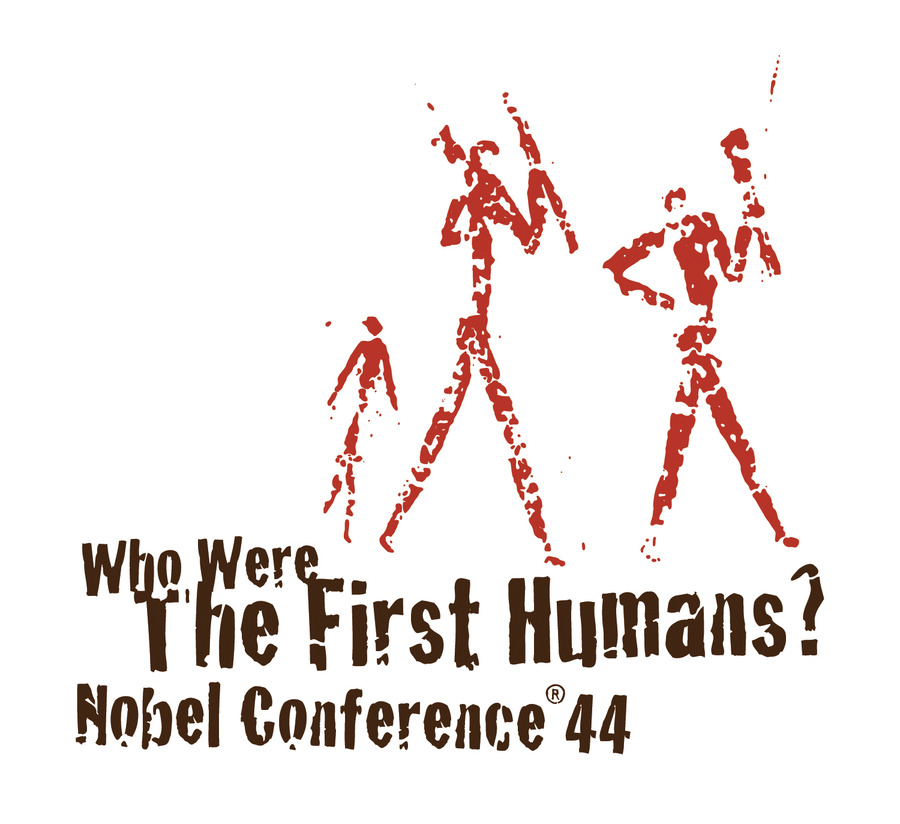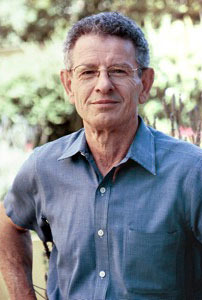Gustavus Adolphus College is pleased to announce the six individuals who will give presentations at the 2008 Nobel Conference. The conference, titled “Who Were the First Humans?” is scheduled for Oct. 7-8. This year’s presenters will be Robin I. M. Dunbar, Marcus Feldman, J.Wentzel van Huyssteen, Curtis Marean, Svante Paabo, and Dennis Stanford.
A short biography on each presenter is included below, while a more complete biography on each presenter is available online at gustavus.edu/nobelconference.
Robin I. M. Dunbar is an evolutionary anthropologist and psychologist whose principal research interest is the evolution of sociality, with specific focus on humans, nonhuman primates, and ungulates. He is widely known for formulating “Dunbar’s number,” a measurement of the “cognitive limit to the number of individuals with whom any one person can maintain stable relationships.”
Marcus Feldman uses applied mathematics and computer modeling to simulate and analyze the process of evolution. He also studies the evolution of modern humans using models for the dynamics of molecular polymorphisms, especially DNA variants. He helped develop the quantitative theory of cultural evolution, which he applies to issues of human behavior, and also the theory of niche construction, which has wide applications in ecology and evolutionary analysis.
J. Wentzel van Huyssteen’s area of academic expertise is religious and scientific epistemology and the question of what makes humans unique. In 2004 he was invited to deliver the Gifford Lectures at the University of Edinburgh and chose to lecture on the dialogue between theology and paleoanthropology.
Curtis Marean’s research interests focus on the origins of modern humans, the prehistory of Africa, and the climates and environments of the past. He maintains a special interest in human occupation of grassland and coastal ecosystems and is currently directing archaeological excavations at cave sites at Mossel Bay in South Africa, where he is seeking to develop a continuous sequence of environmental change from 400,000 to 30,000 years ago and understand how environmental and climate changes contributed to the development of modern humans.
Svante Paabo is a leading authority on paleogenetics, a discipline that uses the methods of genetics to study human evolution and ancient populations. In 1999 his laboratory team conducted a major study of human and chimpanzee DNA, showing that humans and chimps are almost identical genetically and that they shared a common ancestor about 5 to 6 million years ago.
Dennis Stanford has devoted his career to early American prehistory and done field work from Alaska to Monte Verde in Chile, where the oldest human remains in the Americas have been found. With his Smithsonian colleague Bruce Bradley, he is known for advocating the “Solutrean hypothesis,” which contends that Clovis points found in North America and dating back around 11,000 years derive from similar flaking techniques developed thousands of years earlier by the Solutrean culture in Spain and may have been brought to North America by early visitors who traveled by boat along the edge of an icecap that rimmed the North Atlantic during the last Ice Age.
Registration is now available online for the 2008 Nobel Conference by going to gustavus.edu/nobelconference. Ticket prices are $45 for individual non-reserved seating and $75 for individual reserved main floor seating. High school and college student delegation rates are $60 per group of 20. Tickets may also be purchased for the Nobel Conference Buffet ($20), which will take place the evening of Tuesday, Oct. 7.
For more than four decades, Gustavus has organized and hosted the two-day Nobel Conference, which draws about 6,000 people to the college campus in St. Peter, Minn., and links a general audience with the world’s foremost scholars and researchers in discussion centered on contemporary issues relating to the natural and social sciences. The Nobel Conference is the first ongoing educational conference in the United States to have the official authorization of The Nobel Foundation in Stockholm, Sweden.


Leave a Reply
You must be logged in to post a comment.